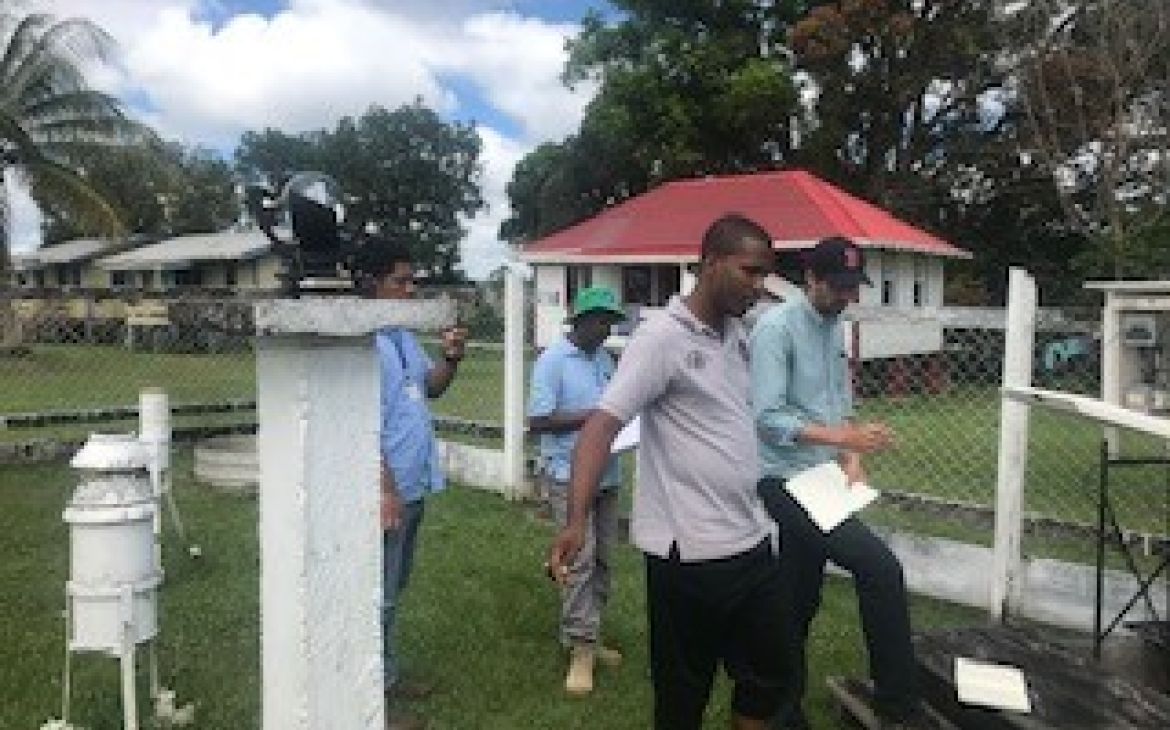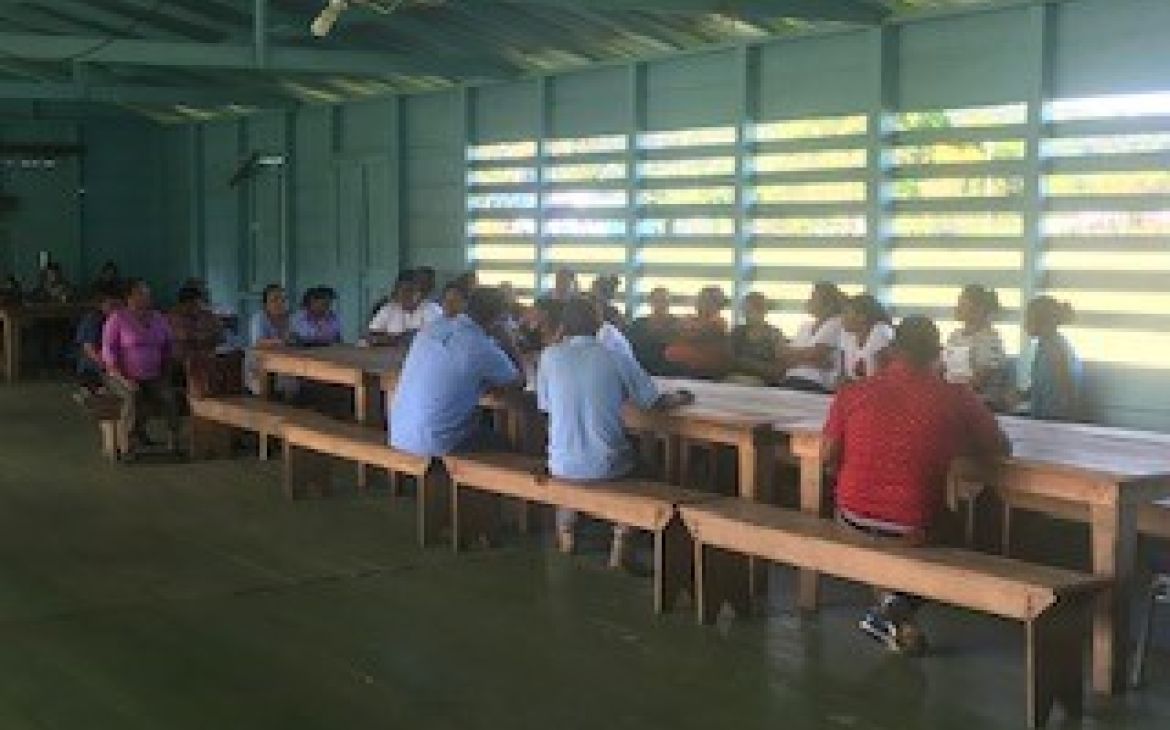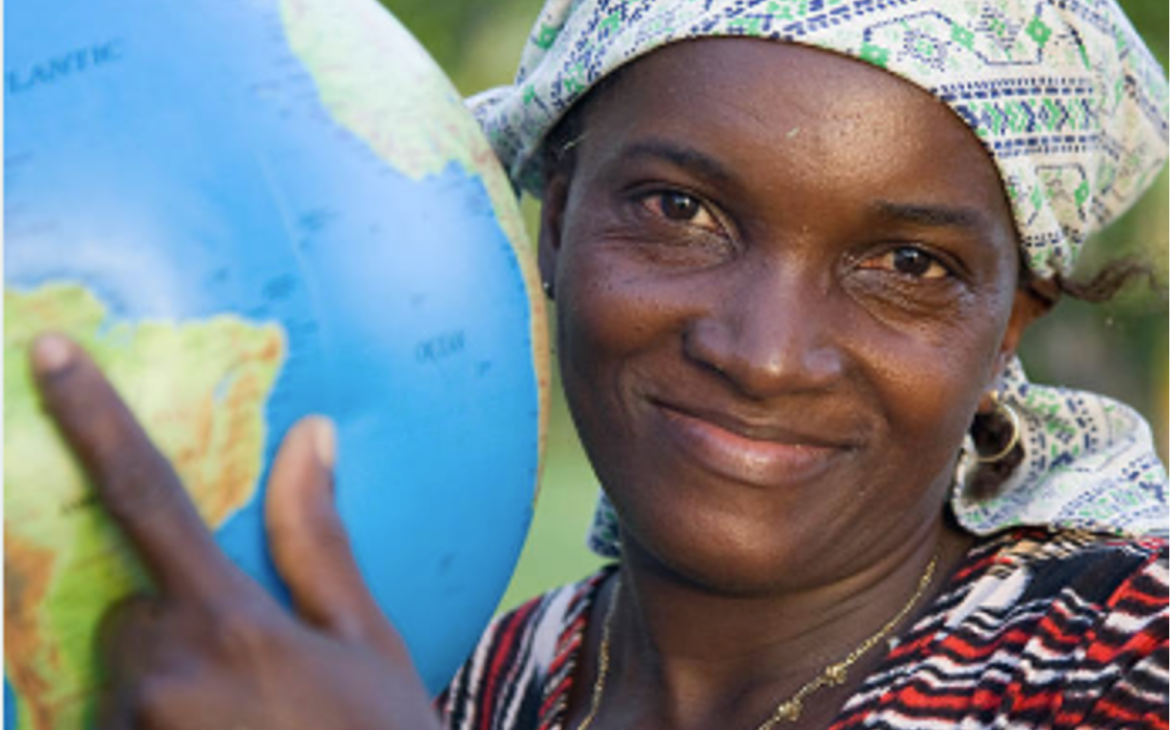31 October 2018, Geneva, Switzerland – UNITAR-UNOSAT is currently collaborating with UNDP and national stakeholders to bolster disaster management capacity in Guyana and Dominica, with a specific focus on women, through the 3-year project funded by the Government of Japan. The project “Strengthening Disaster Management Capacity of Women in the Cooperative Republic of Guyana and Commonwealth of Dominica” is being implemented in partnership with the UNDP Barbados, UNDP Guyana and the member states of OECS (Organisation of Eastern Caribbean States).
In September 2018, UNITAR-UNOSAT took the first concrete step towards implementing an Early Warning System (EWS) for floods in Guyana by carrying out a scoping mission to meet project partners and identified key stakeholders from national ministries. The mission team composed of UNOSAT and implementing partner CIMA research foundation met with the Director General of the Civil Defense Commission, the Permanent Secretary of the Ministry of Agriculture, the Director Chief of Hydromet (under MoA), the Senior Gender Affairs Officer of the Ministry of Social Protection and representatives from other UN agencies. In addition, a multi-stakeholder workshop took place to consult various technical officials and relevant key stakeholders. The meetings provided an opportunity to discuss the needs and challenges relating to Disaster Risk Reduction (DRR) and EWS activities.
Technical gaps and available capacity within the country were also examined with a view to developing a national flood forecasting chain and targeting appropriate agencies to ensure a sustainable handover after the 3-year project. In this spirit, capacity development activities will be delivered to achieve expected outcomes and assist the key national stakeholders in Guyana with maintaining and running the model to provide early warnings for areas at risk of flooding. A field visit allowed the mission team to examine weather stations and discuss with community chiefs. Participating in an exploratory workshop with the community group of Kamarang was also one of crucial objectives of the scoping mission.
The gender component of the overall project is noteworthy as it prioritises women and indigenous groups who are vulnerable to natural disasters. The project aims to implement gender-responsive Early Warning Systems, since women in the agricultural sector in Guyana are disproportionately affected by the loss of assets and crops after a disaster. The agricultural sector tends to be considered male dominated; women are often not recognised as farmers but seen as beneficiaries. To promote gender equality within the agricultural sector and beyond, the project will ensure the gender-responsive data collection and analysis to help inform policy making.
Photo 1: Hydromet weather stations were observed during the field visit to Kamarang
Photo 2: Gender focused EWS participatory workshop with the community in Kamarang




